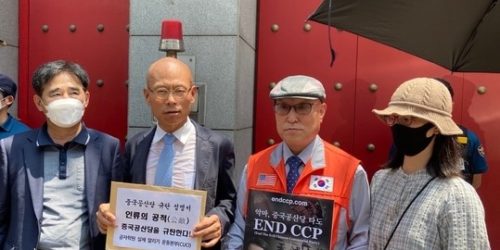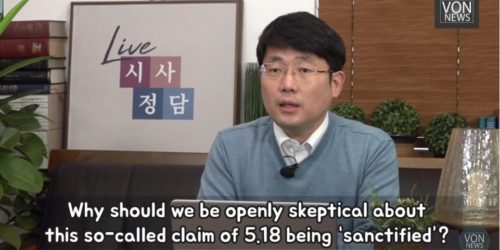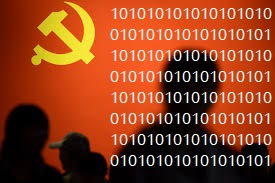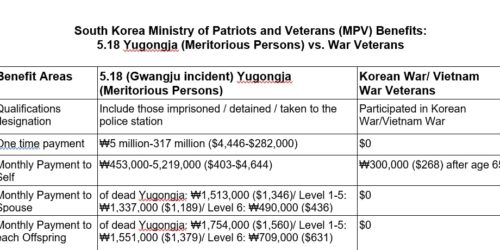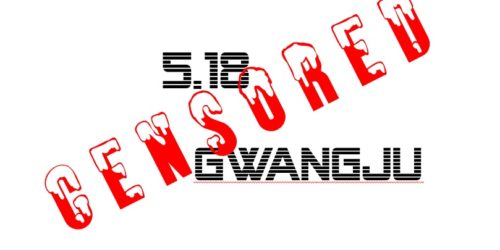Gwangju, Chinese Communist Party, and the Zheng Lucheng Controversy in Korea
2023-9-8, Tara O
The City of Gwangju (Kwangju) in South Jeolla Province in Korea has been paying tribute to a communist, Zheng Lucheng (Chinese pronunciation: Zheng Lucheng, 鄭律成, 정뤼청, Korean pronunciation: Jeong Yul-sung, 정율성), who was loyal to the communist parties in both China and North Korea, especially the Chinese Communist Party (CCP). A street, a statue, and a museum idolizing Zheng were already established in South Jeolla Province. The City of Gwangju even held a Zheng Lucheng music festival for ₩284,000,000 (over $200,000), also paid by the taxpayers. Now they want to build a park in Gwangju to idolize him.
A statue of Zheng Lucheng in Gwangju, South Korea (below)
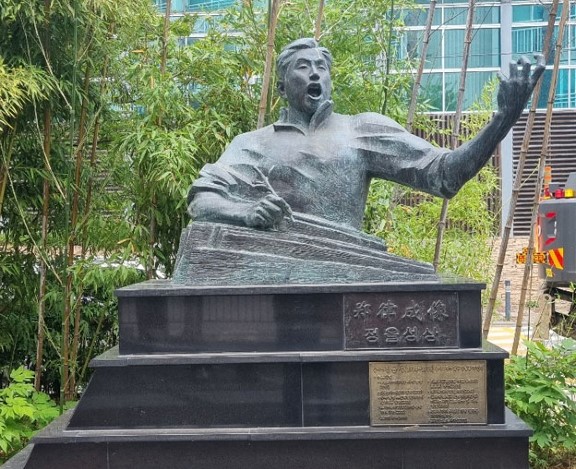
Moon Jae-in, when he visited China in 2017, praised Zheng Lucheng as the symbol of Korea-China friendship. That year, the Blue House aggressively tried to designate Zheng as a “Meritorious Person” of the Republic of Korea (ROK), but given his unarguable background working against the ROK, it could not be approved. However, the Moon Jae-in administration found other ways to idolize Zheng—a park project commemorating Zheng Lucheng at the cost of ₩4.8 billion (~$4 million), all borne by the taxpayers, which it approved.
Born in Gwangju in 1914, Zheng Lucheng / Jeong Yul-sung (born as Jeong Bu-eun) migrated to China, where he died in 1974. Considered top 100 heroes by the Chinese Communist Party (CCP), Zheng is buried in the Cemetery of Revolutionary Fighters (혁명투사 공동묘지) in China. In 1939, he became a member of the Chinese Communist Party (CCP) under Mao Zedong. Zheng composed the CCP’s People’s Liberation Army (PLA) song (when it was the 8th Route Army), “the March of the 8th Route Army.” He also composed a multitude of songs praising Mao and the CCP, and was considered a “revolutionary musician” in China.
In December 1945, he moved to Korea and joined the Chosun Communist Party (Korean Communist Party), becoming the head of Propaganda in the Hwanghae Province People’s Committee. People’s Committees were part of the communist network at every provincial, city, county, town, and village level. When he traveled to North Korea from China, he played a key role in producing propaganda to support North Korea’s land confiscation program, producing materials to convince peasants that land confiscation was “free land” for them, when it was not. The peasants did not and could not have ownership of land in a socialist society; the ownership of land transferred from the landowners, who were purged or kicked out, to the North Korean government. The collectivization was to come later in the late 1950s after the Korean War.
In 1949, Zheng also composed the “Korean People’s March,” the official song of North Korea’s Korean People’s Army (KPA), as the head of the composition department of the Chosun Conservatory of Music. He received an award from Kim Il-sung for all his efforts supporting the communist party. Hwasun County in South Jeolla Province spent a whopping ₩1.2 billion (~$1 million) to restore the “Zheng Lucheng’s birthplace,” which included a display of the “Kim Il Sung Award” he received.
When North Korea invaded South Korea, starting the Korean War in 1950, Zheng went back to China, but returned to Korea in October that year with the Chinese communist forces (the so-called Chinese Volunteer Army) to help North Korea and to boost the morale of the communist forces of both China and North Korea.
Chinese communist forces dance and celebrate their occupation of Seoul, 1951-1-4 (below)
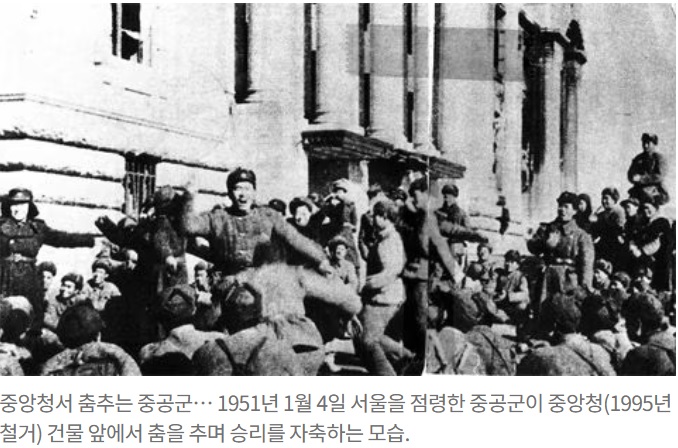
Before he returned to China in early 1951, he stole cultural assets, including Joseon Dynasty sheet music and other relics related to the Joseon royal family.
The park project dedicated to Zheng has become controversial recently. Park Min-shik (박민식), the Minister of Patriots and Veterans Affairs, wants to “prevent a project that commemorates the enemies of the Republic of Korea,” and described Zheng as “the cheerleader who boosted the morale of the enemies who pointed guns and knives at us,” adding, “The resentment and blood of so many patriotic spirits who were killed by the communists has not yet cooled.”
Others have also come out against the project. The Honam Alternative Forum (호남대안포럼) and the Gwangju branch of the National Alliance for the Defense of Students (전국학생수호연합) held a combined press conference on August 28, 2023 at the Zheng Lucheng Road in Gwangju on the same day, stating they “oppose the creation of a park to commemorate Jeong Yul-sung (Zheng Lucheng), the cheering captain for the North Korean army, which massacred our people.”
Despite the controversy, Gwangju Mayor Kang Ki-jung (강기정) is intent on moving forward with the park project, claiming it would bring in more Chinese tourists. The Gwangju branch of MBC Broadcasting is also promoting Zheng Lucheng. Since 2014, it has held a nationwide children’s song contest involving elementary school students singing a song composed by Zheng, who composed songs praising Mao Zedong and the communist parties in China and North Korea.
The song contest, it turns out, was co-organized with the Confucius Institute at Honam University in Jeolla Province. Last year in June, the Headquarters for Exposing the Truth about the Confucius Institute (공자학원 실체 알리기 운동본부), a civic organization in South Korea that exposes communist China’s influence operations by the United Front Department and other organizations under the Chinese Communist Party (CCP), held a press conference. It demanded demolishing Zheng’s statue and renaming of the Zehng Lucheng Road.
The National Union of Media Workers at MBC Headquarters (전국언론노동조합 MBC 본부), which is under the umbrella of the violent Confederation of Trade Unions (KCTU) (전국민주노동조합총연맹) has been dominating MBC for years, and the union has harassed and ousted those they do not like. The former has a history of severely harassing board members to remove them in order to install their own and the umbrella organization KCTU has a violent history of attacking police and engaging in espionage and subversion under the direction of North Korea. MBC is a quasi-government media organization.
MBC is not the only media that praised Zheng. The Yonhap News, another government media outlet, has reported on Zheng about 600 times since 2022, but only about praising him, not giving other facts about his role in promoting communism and supporting the CCP’s PLA and North Korea’ Workers’ Party of Korea’s KPA, until very recently. Yonhap News described Zheng as “China’s best musician,” “The Godfather of Chinese Revolutionary Music,” and “The originator of the Korean Wave in China.”
In 2021, Yonhap News Agency signed a contract with CCP’s mouthpiece Xinhua News Agency to distribute Korean-language news on Xinhua’s behalf. It has diligently carried out the contract, which helps China’s influence operations. For instance, in April 2023, it became a conduit that carried Xinhua News Agency’s article that denigrated the ROK-U.S. alliance and President Yoon Suk-yeol.
One thing is clear: Zheng Lucheng did not participate in or support the establishment of the Republic of Korea, which is based on freedom; rather, his efforts were against it, and he supported Korea controlled by the communist party. So why do the Gwangju mayor, the Confucius Institute, and some other supporters want to commemorate him?
